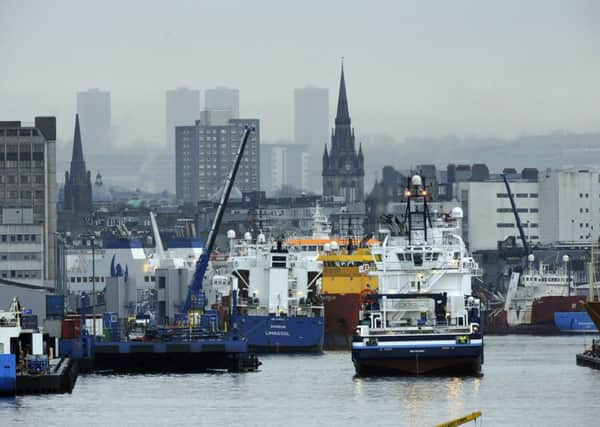Brexit: oil and gas trade costs '˜could double'


Oil and Gas UK, the body which represents the sector, has raised concerns with the Prime Minister after a new study showed the cost of trade could rise from a current total of £600 million a year to £1.1 billion, if Britain is forced to revert to World Trade Organisation (WTO) rules after it exits the European Union.
With one in 20 (5 per cent) of workers in the sector coming from other parts of the EU - and about 70 per cent of this group in skilled posts - the trade body has also urged UK Government ministers to consider the role they play when developing future immigration policy.
Advertisement
Hide AdAdvertisement
Hide AdOil and Gas UK raised the issues in a letter to Theresa May, urging the Government to seek to preserve “frictionless” access to markets and labour once the UK leaves the EU.
Ministers should also seek to maintain a “strong voice” in Europe, the organisation said.
There is approximately £73bn of oil and gas-related trade between the UK and the rest of the world, with about £61bn of this related to goods which could see tariffs imposed on them.
While the worst-case scenario where the UK has to revert to WTO rules post-Brexit could see the cost of trade almost double, analysis for Oil and Gas UK shows that if Britain is able to negotiate minimal tariffs with the rest of Europe and improve tariffs with the rest of the world, the overall cost of trade for the sector could fall by about £100m to £500m.
Oil and Gas UK chief executive Deirdre Michie stressed the organisation was “apolitical” and could not “take a position on Brexit”.
But she said it had commissioned the research “because we need to understand the possible impact on our industry - and the possible opportunities - from exiting the EU”.
She said: “We also identified other EU policy issues as critical to the oil and gas industry and will require negotiation with European counterparts, as well as discussions at the domestic level between Government, regulators and industry during the Brexit process.
“During the global industry downturn, our industry has continued to focus on increasing its production efficiency, and on its unit operating costs which have improved by almost 50 per cent.
Advertisement
Hide AdAdvertisement
Hide Ad“We are becoming a more globally competitive industry, but we continue to be very sensitive to any additional burdens either in relation to cost or restrictions on the movement of key personnel required for critical operations.
“There are still up to 20 billion barrels of oil and gas to recover from the UK Continental Shelf and, if properly supported, our already world-class supply chain could double its turnover by 2035.
“Oil & Gas UK would welcome discussions with Government officials to outline industry’s concerns and opportunities and help identify a path forward during Brexit negotiations.
“Our request of Government is that any change, whether domestic or European, is managed in a manner that minimises risk to the oil and gas industry and provides predictability and clarity wherever possible, through constructive dialogue and consultation.”
